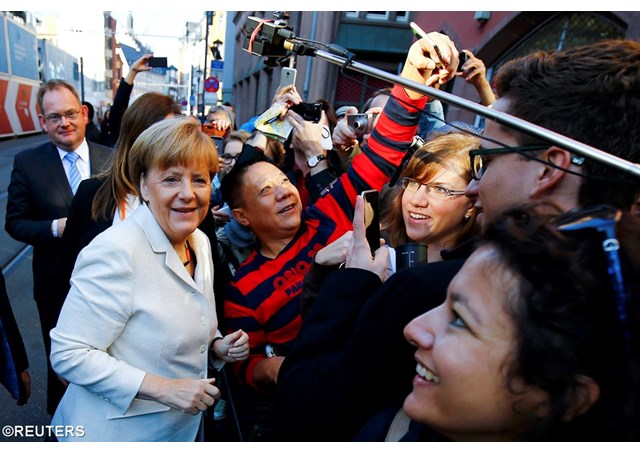
Germany marks 25 years as a reunited nation

(Vatican Radio) Germany marks a quarter-century as a reunited nation on Saturday, with two leaders from the formerly communist east heading a country that increasingly asserts itself as Europe's political heavyweight .
It comes while the country, now Europe’s leading economy, faces new challenges in a refugee influx that will demand deep reserves of resourcefulness and patience.
Listen to the report by Stefan Bos:
With mixed feelings Germans remember that East and West Germany united on October 3, 1990. It capped a process that started less than 11 months earlier when the east's communist leadership opened the Berlin Wall under pressure from massive demonstrations.
Differences between East and West has been a slow process, and some inequalities persist even now. However Chancellor Angela Merkel, who grew up in the east and entered politics as communism fell, said that on the whole in her words "things worked out well - so many people pitched in, showed verve and began to learn new jobs,"
Yet the commemorations come amid new realities of a reunited nation that is now faced with tensions over an unprecedented influx of refugees, many of them fleeing conflict in Syria.
VOCAL MINORITY
Germany’s interior minister has criticised what he said was a “minority” of refugees
who have left or caused trouble in their allocated reception areas.
Thomas de Maizière stressed on German television that migrants accept the relocations
determined by German authorities. “Until this summer, the refugees were grateful to
be here with us. They asked where the police were, where the authorities were, where
they would be moved to,” he said.
“Now there are many refugees who believe they can reassign themselves, they leave our facilities, hail a taxi and, astonishingly, spend money travelling hundreds of kilometres through Germany, protest because they do not like the accommodation and cause trouble because they do not like the food,” the minister added.
His remarks come while recent polls show growing resentment about the crisis among Germans. Some 51 percent of Germans said they were now worried about the future amid the refugee crisis, is up from 38 percent three weeks earlier.
Some 25 years after the collapse of Communism and reunification, reemerged Germany
now expects as many as 800,000 asylum seekers this year alone.
| All the contents on this site are copyrighted ©. |


